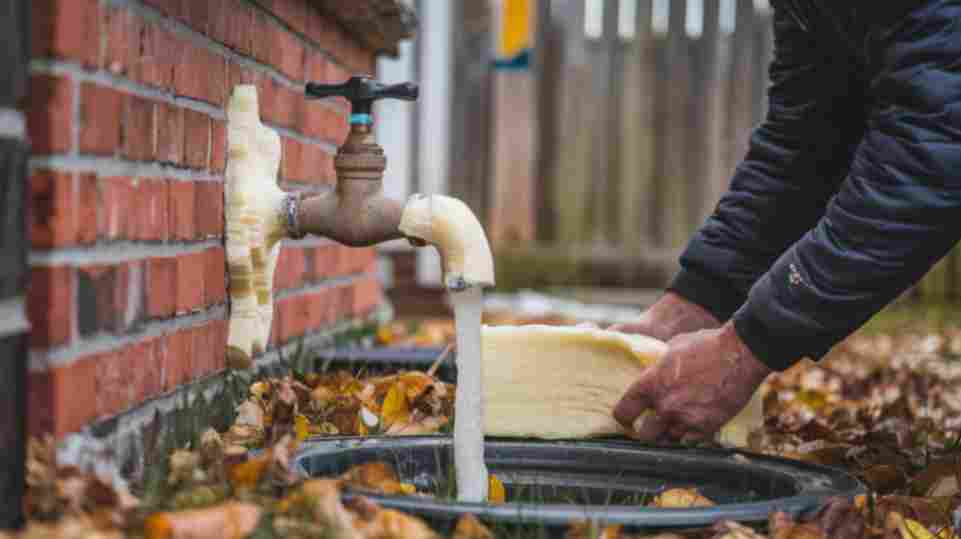As winter approaches, it’s essential to take steps to protect your outside faucets from freezing temperatures. Frozen pipes can lead to significant damage and costly repairs.
Here we outlined effective methods to safeguard your outdoor faucets during cold weather, ensuring they remain functional and intact throughout winter.
5 Tips to Protect My Outside Faucets in Cold Weather
Taking a few simple steps can help protect your faucets from freezing temperatures and ensure they remain in good working condition throughout the winter.
Here are 5 tips to protect your outside faucets in cold weather:
Insulate Your Faucets
Insulating your outside faucets is one of the most effective ways to protect them. Here are some options:
- Faucet Covers: Purchase insulated faucet covers specifically designed for outdoor use. These covers are easy to install and protect against freezing temperatures.
- Pipe Insulation: Use foam pipe insulation sleeves to wrap around the faucet and exposed pipes. This will help maintain a stable temperature and prevent freezing.
Draining the Faucets
Before the cold weather sets in, it’s wise to drain your outdoor faucets:
- Turn Off the Water Supply: Locate the shut-off valve for your outdoor faucet and turn it off.
- Open the Faucet: Open the faucet to allow any remaining water to drain out completely.
- Remove Hoses: If you have hoses attached, disconnect them and store them indoors to prevent freezing.
Use Heat Tape
For areas that experience extreme cold, consider using heat tape:
- Heat Tape: This is an electrical tape that can be wrapped around your outdoor pipes. It generates heat to keep the pipes warm and prevent freezing. Be sure to follow the manufacturer’s instructions for safe installation.
Keep the Faucet Dripping
In extremely cold weather, allowing a small trickle of water to flow through the faucet can help prevent freezing:
- Drip the Faucet: Open the faucet slightly so that a small stream of water flows. Moving water is less likely to freeze, which can help protect your plumbing.
Monitor the Weather
Stay informed about the weather conditions in your area:
- Weather Alerts: Pay attention to weather forecasts and alerts for freezing temperatures. Be proactive in taking protective measures when cold snaps are predicted.
Conclusion
By following these simple steps, you can effectively protect your outside faucets from the harsh effects of cold weather. Insulating your faucets, draining them before winter, using heat tape, allowing a drip, and monitoring the weather will help ensure that your plumbing remains intact and functional throughout the winter months. Taking these precautions can save you from costly repairs and the inconvenience of frozen pipes.

